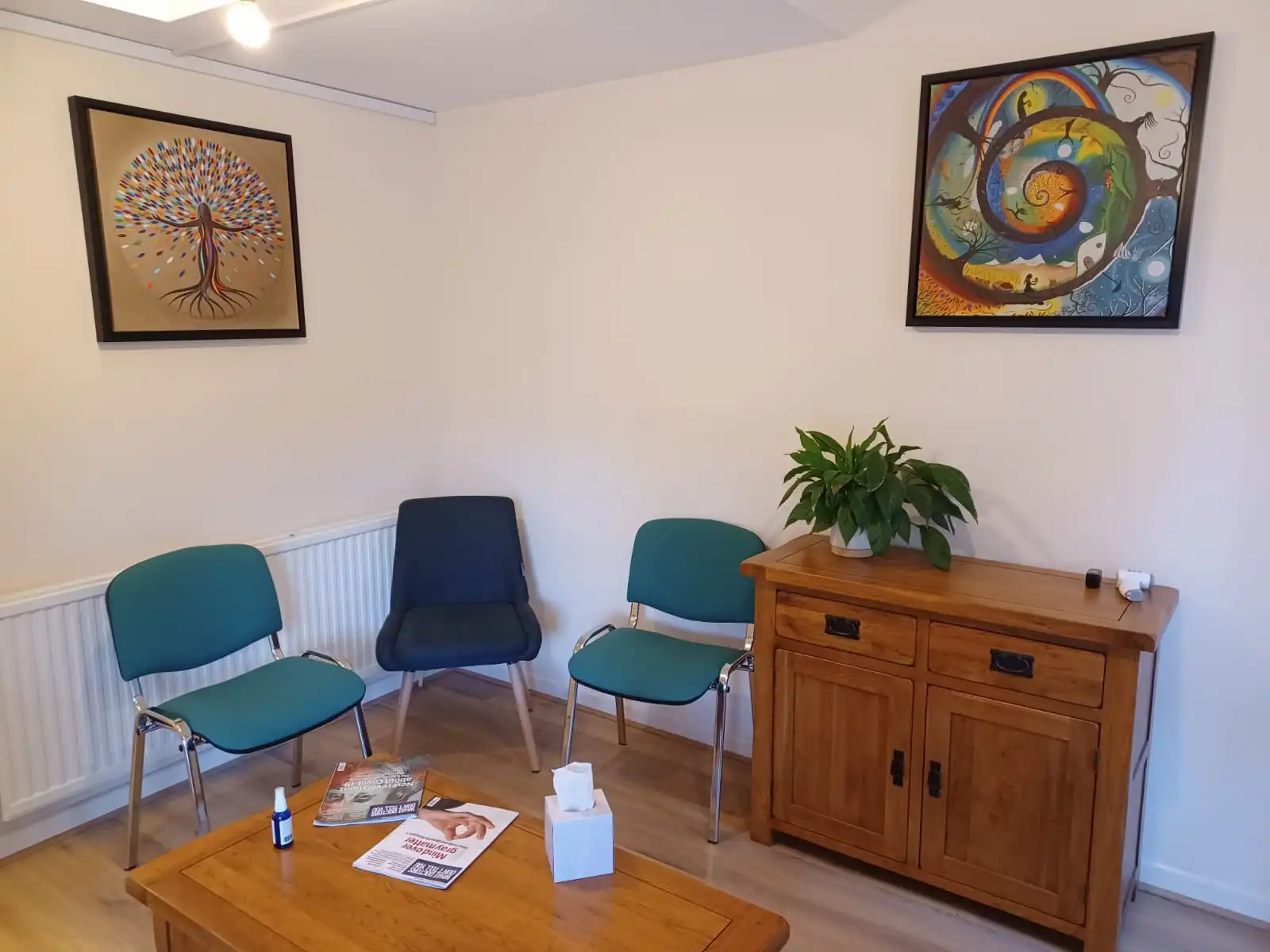
Insomnia is a common sleep disorder that affects millions of people worldwide. It may come in many forms including difficulty falling asleep, staying asleep, or waking up too early and not being able to fall back asleep, despite having the opportunity to sleep. For some people, insomnia is a short-term issue that improves with time or changes in routine. For others, it can become a chronic problem that affects their overall health and well-being.
Insomnia is more than just a sleepless night. It is a persistent problem with sleep that occurs at least three times a week for three months or longer. There are two main types of insomnia:
Acute Insomnia
This is short-term and often triggered by stressful events such as a major life change, illness, or trauma. Acute insomnia typically lasts for a few days or weeks.
Chronic Insomnia
This type of insomnia lasts for at least three months and occurs on a regular basis. It can be caused by underlying health conditions, lifestyle factors, or psychological issues.
The symptoms of insomnia can include:
These symptoms can significantly impact daily life, affecting concentration, memory, and overall quality of life.

Insomnia can be caused by a range of factors, including lifestyle habits, psychological issues, and physical health conditions. Some of the most common causes include:
Stress and Anxiety
Stress is one of the most common causes of acute insomnia. Work pressures, financial concerns, relationship problems, and major life changes (such as moving house or the loss of a loved one) can disrupt sleep. Anxiety can also contribute to chronic insomnia. Worrying about sleep can create a vicious cycle that makes it even harder to sleep.
Depression
People with depression often experience sleep problems, including insomnia. It can be difficult for those who are depressed to fall asleep or stay asleep, and they may wake up early in the morning feeling unrested. In fact, sleep disturbances are one of the diagnostic criteria for depression.
Poor Sleep Habits
Lifestyle factors such as irregular sleep schedules, excessive screen time before bed, or drinking too much caffeine or alcohol can all interfere with sleep. For example, the blue light emitted by phones, tablets, and computers can disrupt the production of melatonin, a hormone that helps regulate sleep.
Medical Conditions
Certain medical conditions can cause or worsen insomnia. These include chronic pain (from conditions like arthritis or back problems), asthma, allergies, restless legs syndrome, and gastroesophageal reflux disease (GERD). Neurological disorders like Parkinson’s disease or dementia can also lead to sleep disturbances.
Medications
Some medications, including antidepressants, stimulants, and medications for high blood pressure or allergies, can interfere with sleep. If you suspect your insomnia is caused by medication, it is important to consult with a healthcare provider to adjust the treatment.
Hormonal Changes
Hormonal fluctuations, particularly during menopause or pregnancy, can affect sleep patterns. Hot flushes and night sweats can make it difficult for women to sleep soundly during this time.
Age
Sleep problems become more common with age. Older adults may experience lighter sleep and more frequent awakenings during the night, making it harder to get restorative rest. Changes in the body’s circadian rhythm (the internal body clock) can also contribute to insomnia in older adults.

While it may seem like a simple problem, chronic insomnia can have a wide range of negative effects on both physical and mental health. Sleep is essential for the body to function properly, and prolonged sleep deprivation can impair many systems in the body.
Cognitive Function and Memory
Lack of sleep has a direct impact on brain function. People with insomnia often experience difficulty concentrating, memory problems, and slower reaction times. Sleep is crucial for cognitive functions like learning, problem-solving, and decision-making. Chronic sleep deprivation can lead to cognitive decline, particularly in older adults.
Mood and Mental Health
Insomnia is closely linked to mental health problems, particularly anxiety and depression. The frustration and stress caused by poor sleep can worsen existing mental health conditions. Moreover, chronic insomnia increases the risk of developing mood disorders. A lack of sleep can also lead to irritability, mood swings, and difficulty managing emotions.
Immune System
Sleep is essential for the immune system to function properly. Chronic insomnia can weaken the immune system, making individuals more susceptible to infections like colds and flu. Lack of sleep also impairs the body’s ability to recover from illness or injury.
Cardiovascular Health
Long-term insomnia can have serious effects on heart health. Research has shown that people with chronic sleep problems have an increased risk of hypertension (high blood pressure), heart disease, and stroke. Sleep deprivation increases levels of stress hormones like cortisol, which can damage blood vessels over time.
Metabolism and Weight Gain
Sleep plays a key role in regulating metabolism and appetite. Chronic insomnia is linked to an increased risk of obesity and type 2 diabetes. Sleep deprivation disrupts the balance of hormones that control hunger, such as leptin (which signals fullness) and ghrelin (which signals hunger), leading to overeating. Additionally, a lack of sleep can reduce the body’s ability to process glucose, increasing the risk of insulin resistance and diabetes.
Chronic Pain
People with chronic pain conditions, such as fibromyalgia or arthritis, are more likely to experience insomnia. Conversely, poor sleep can increase sensitivity to pain, creating a vicious cycle of pain and sleep disruption. Insomnia is also common in conditions like migraines and back pain.
Reduced Quality of Life
Chronic insomnia can significantly reduce overall quality of life. People with insomnia may feel constantly tired and unable to engage in daily activities fully. They may struggle to keep up with work or social commitments, leading to frustration, isolation, and decreased life satisfaction.
The health implications of insomnia are far-reaching and can affect nearly every aspect of life. Here are some of the most significant consequences:
Increased Risk of Accidents
Sleep deprivation impairs alertness, attention, and reaction times, making people with insomnia more prone to accidents. This includes car accidents, workplace injuries, and falls, particularly in older adults.
Chronic Conditions
As mentioned, insomnia is linked to various chronic conditions, including cardiovascular disease, obesity, diabetes, and mental health disorders. These conditions can significantly reduce life expectancy and quality of life if left untreated.
Worsened Existing Conditions
If a person has an existing health condition, insomnia can make it worse. For example, people with heart disease, hypertension, or diabetes may experience a worsening of their symptoms if they do not get enough sleep. Insomnia can also exacerbate the effects of chronic pain.
Impaired Social and Occupational Functioning
Chronic insomnia can make it difficult to concentrate at work, attend social events, or perform daily tasks. People may feel irritable or fatigued, which can strain relationships with colleagues, family, and friends.


There are various ways to treat insomnia, depending on its cause and severity. Treatment can include lifestyle changes, therapy, and medication. Whilst medication (sleeping pills) can be useful in emergencies it doesn’t address the root cause of the issue and can lead to a reduction in our deep and REM sleep – far from ideal! The following solutions are directed for those are seeking a more natural solution.
Relaxation techniques
Any approach that reduces stress in the autonomic nervous system (ANS) will help with insomnia because they put our bodies into the relaxed state controlled by our parasympathetic nervous system (PNS). Yoga, meditation, yoga Nidra, Tai Qi, Qi Gong are all great ways to access these states. We can also find other more personal activities which help us access these states e.g. walking in nature, knitting – anything where we become totally absorbed.
Supplements
There are many supplements that can be helpful for sleep including 5-HTP, melatonin, magnesium, L-theanine, Ashwagandha, B vitamins and more. It is advisable to seek advice that is individually tailored to your needs from a healthcare practitioner if you wish to use supplements.
Lifestyle Changes
Adopting good sleep hygiene can help manage insomnia. This includes maintaining a regular sleep schedule, avoiding caffeine or alcohol close to bedtime, creating a relaxing bedtime routine, and limiting screen time (blue light inhibits the production of melatonin) before sleep. Additionally, making the sleep environment comfortable by keeping the room cool (around 18C is ideal), dark, and quiet can improve sleep quality.
If you or someone close to you is suffering from Insomnia and is seeking further advice and support, you can get in touch with us using the contact page. Good sleep is the bedrock of good health and wellbeing, so addressing the root causes of insomnia is the most important step we can take before any other health interventions.
References
References:
Trustindex verifies that the original source of the review is Google. Had shoulder pain results after fist treatment highly recommend very good and excellent service and he is a really nice manTrustindex verifies that the original source of the review is Google. Seeing Jonny has been transformative (to put it lightly). I'm still happily and frequently seeing him after 5 years, and his work has been more than worth the investmentTrustindex verifies that the original source of the review is Google. I have been seeing Jonny since June 2022. I have for many years been struggling with complex health issues, which have been diagnosed as 'chemical and drug induced disautonomia and dystonia'. The origin of this goes back many years to early employment in an unprotected environment, and also to the treatment for repeated infections, and major surgery. I also have many intolerances which are making everyday life difficult. Jonny was very honest, saying that dystonia is difficult to treat; but he felt that he could address some of the other issues, including detoxing the chemicals and other 'foreign' substances that still lurked in my system. He said that it would be a long proces; there was a lot of involvement with my central nervous system, especially the brain; but as symptoms were increasing as i aged i was eager to 'give it a go'. Now, looking back, i can see progress, and a lot of the test results 'make sense', explaining the symptoms I experience. I see Jonny every six weeks and have always found him friendly, professional and caring. He demonstrates the depth of his knowledge of his unique healing techniques, and he explains what he is doing. I would certainly recommend Jonny, especially if you have complex health issues, and like me, have struggled to find a practitioner who is willing and competent to help.Trustindex verifies that the original source of the review is Google. I have been seeing Jonny for over 3 years and his treatment has made a massive difference to my health. I suffer from connective tissue disease and was really struggling and needed a lot of medication to get by and I am now almost drug free and feeling back to normal. Can’t recommend him highly enough.Trustindex verifies that the original source of the review is Google. I cannot put into words just how lucky I know I am to have met Jonny and to be receiving his amazing care! I look forward to my visits so much and always leave feeling happy and revitalised! I had been suffering with a chronic health problem for many years and conventional medicine had not been helpful. Jonny was able to identify the problem very quickly and I am now well on the road to recovery. Thank you so much Jonny. You are an absolute star!Trustindex verifies that the original source of the review is Google. My experience with Jonny has been out of this world. I first started seeing him years ago for a variety of work related injuries which were relieved after every appointment. As time has passed the journey of healing has deepened and evolved into so much more. Jonnys practice supports human health on all levels and has helped me (and continues to help me) physically, emotionally, and spiritually. I am so grateful for him and his work and would recommend him to anyone who is open to truly healing trauma.Trustindex verifies that the original source of the review is Google. Jonny somehow manages to fuse extreme open-mindedness about health together with specific and targeted treatment. After a session, I always feel as though I've learned something new about what my body needs in order to feel well and energised, and most importantly, I always end up feeling better.Trustindex verifies that the original source of the review is Google. I’ve always been open to exploring new ways of healing physical and emotional pain. Jonny has been my gateway to access the root. Not only is he incredibly knowledgeable, but gentle in his approach and very explanatory. I always look forward to my appointments. Thankyou Jonny for the support and care on my journey.Trustindex verifies that the original source of the review is Google. A brilliant practitioner, Jonny Hirtenstein is a true healer. I've struggled with lower back pain and sciatica for years, having suffered from a bulging disc, and Jonny has been the one to get me back on my feet. His practice is a clean, calm and relaxing place to get better. Highly recommended for all.Trustindex verifies that the original source of the review is Google. Jonny at Foundation for Life Healthcare has helped me immeasurably. For many years chronic neck pain remained unresolved in spite of seeing all kinds of medical and holistic practitioners. Since seeing Jonny my health is the best it has ever been. It is such a relief to be pain free!Google rating score: 5.0 of 5, based on 11 reviews